Crypto Ban in Bangladesh: Legal Consequences for Bitcoin Trading
Bitcoin Trading Risk Calculator
Assess Your Risk
This calculator estimates potential legal consequences based on transaction volume and activity in Bangladesh. Remember: Trading cryptocurrency in Bangladesh is illegal under money laundering laws.
What Happens If You Trade Bitcoin in Bangladesh?
In Bangladesh, trading Bitcoin isn’t just risky-it’s legally dangerous. The central bank, Bangladesh Bank, has banned all cryptocurrency transactions since 2017. But here’s the catch: owning Bitcoin isn’t explicitly illegal. The law doesn’t say, "Don’t hold Bitcoin." It says, "Don’t use it to move money." And that gray area is where people get trapped.
If you buy Bitcoin on Binance or trade it through a local agent, you’re not breaking a single law that says "Bitcoin is banned." But if your bank notices unusual transfers, if the Financial Intelligence Unit (BFIU) flags your mobile wallet activity, or if you’re caught exchanging Tether for cash, you’re suddenly under investigation. And once you’re under investigation, you’re facing serious consequences.
The Laws That Actually Get You Arrested
The real danger isn’t the crypto ban itself-it’s how authorities use other laws to punish it. The Money Laundering Prevention Act of 2012 is the main weapon. Section 6 says it’s a crime to handle money from illegal activities. The government argues that since crypto isn’t legal tender, any transaction involving it is automatically suspicious. That’s enough to trigger a criminal case.
Penalties? Up to 10 years in prison and fines between 10,000 and 1,000,000 Bangladeshi Taka (roughly $90 to $9,000 USD). That’s not a warning. That’s a prison sentence.
Real cases prove this isn’t theoretical. In July 2022, 14 people in Dhaka were arrested for running a crypto exchange that handled $2.3 million. In February 2023, a trader named Mohammad Ali had 127 Bitcoin-worth over $12 million at the time-seized by police. In May 2024, seven university students in Chittagong were investigated for moving $85,000 monthly through peer-to-peer trades. These weren’t big operators. These were regular people using apps like LocalBitcoins or bKash to cash out.
How Authorities Track You
You might think you’re hidden if you use a VPN and don’t tell anyone. But Bangladesh’s financial surveillance system is more advanced than most people realize.
- Bank transactions: Any international card payment linked to a crypto exchange is flagged by the Bangladesh Automated Clearing House (BACH). In Q4 2024 alone, 127 such transactions were marked as suspicious.
- Mobile wallets: bKash and Nagad, used by over 80% of the population, monitor transfers for crypto patterns. In 2024, they blocked 2,843 accounts suspected of crypto activity.
- Local agents: Thousands of people use cash brokers to convert Bitcoin to Taka. These agents are the weak link. When one disappears-like Sohel Rana in June 2024, who vanished after collecting $350,000 in cash-police trace the victims. And those victims get questioned, sometimes arrested.
Even if you’re careful, your digital footprint leaves traces. If you use Binance or KuCoin from Bangladesh, those apps still know your IP address, device ID, and payment method. Authorities don’t need to hack you-they just need a warrant to ask the app for your data.
Why People Still Trade
Despite the risks, an estimated 500,000 to 700,000 Bangladeshis still trade crypto. Why? Because the alternatives are worse.
Remittances from overseas workers make up 6.1% of Bangladesh’s GDP-over $21 billion in 2024. Sending money through traditional channels takes days and costs 8-10%. Crypto can deliver funds in minutes for under 1%. For families relying on money from the Middle East or Malaysia, that’s life-changing.
Also, inflation in Bangladesh hit 11.4% in 2024. The Taka lost value fast. Bitcoin, even if illegal, became a store of value for many. People weren’t speculating-they were surviving.
Apps like Binance still work on the Google Play Store in Bangladesh. Why? Because Google doesn’t block them. The government hasn’t forced them to. So users download them, trade them, and hope they won’t get caught.
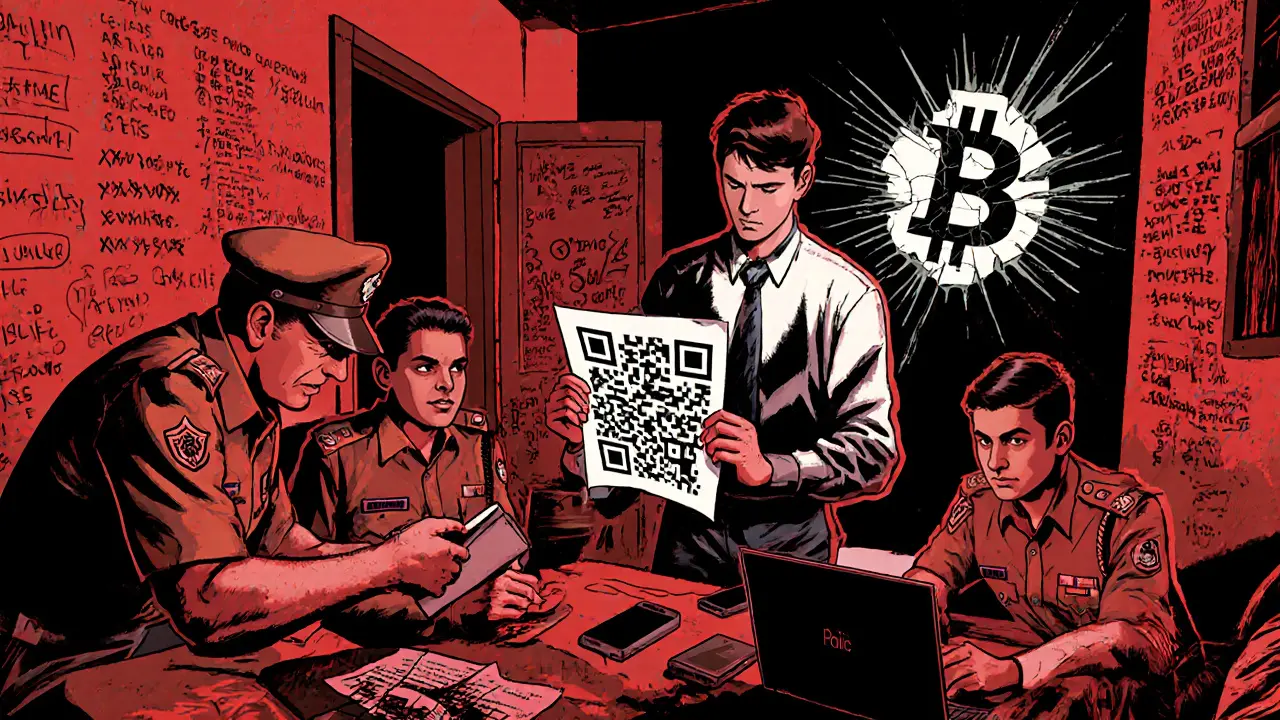
The Legal Gray Zone No One Talks About
In November 2021, Bangladesh Bank sent a private note to the Criminal Investigation Department (CID) saying: "Trading or owning cryptocurrency is not illegal by itself." That document, CID Case No. 1147/2021, exists. But the bank never made it public. They keep issuing warnings. They keep arresting people. They keep seizing Bitcoin.
This contradiction is intentional. It gives authorities flexibility. They can say, "We warned you," then charge you under money laundering laws. Legal experts call it a "dangerous limbo." You don’t know if you’re breaking the law until you’re already in custody.
One lawyer told me: "If you’re rich and connected, you might get a warning. If you’re a student or a shopkeeper, you get handcuffs."
What About Taxes?
The National Board of Revenue (NBR) doesn’t have a crypto tax law. But they don’t need one. Under the Income Tax Ordinance of 1984, any profit from a transaction is taxable. If you bought Bitcoin at 3 million BDT and sold it for 5 million BDT, you made a 2 million BDT profit. That’s taxable income.
For individuals, that’s up to 30% tax. For businesses, 25%. No one reports it. No one files. But if you’re audited-say, because your bank account suddenly has 10 large crypto-related deposits-the NBR can demand proof of where that money came from. No proof? You owe back taxes, penalties, and interest. And if they suspect fraud, you’re looking at criminal charges too.
How Bangladesh Compares to Neighbors
India taxes crypto at 30% but lets people trade freely. Pakistan is exploring using Bitcoin as a reserve asset. Sri Lanka drafted a full regulatory framework in late 2024. All of them see crypto as something to manage, not eliminate.
Bangladesh is the only country in South Asia that still insists on a total ban. Even the government admits blockchain technology has value. In January 2025, the central bank launched a sandbox for blockchain applications in supply chains and land records. But Bitcoin? Still banned.
That contradiction is costing the country. Dr. B M Mainul Hossain from Dhaka University estimates Bangladesh loses $150 million a year in tax revenue and innovation potential because of the ban. Meanwhile, young entrepreneurs leave for India or Dubai, where crypto is legal.
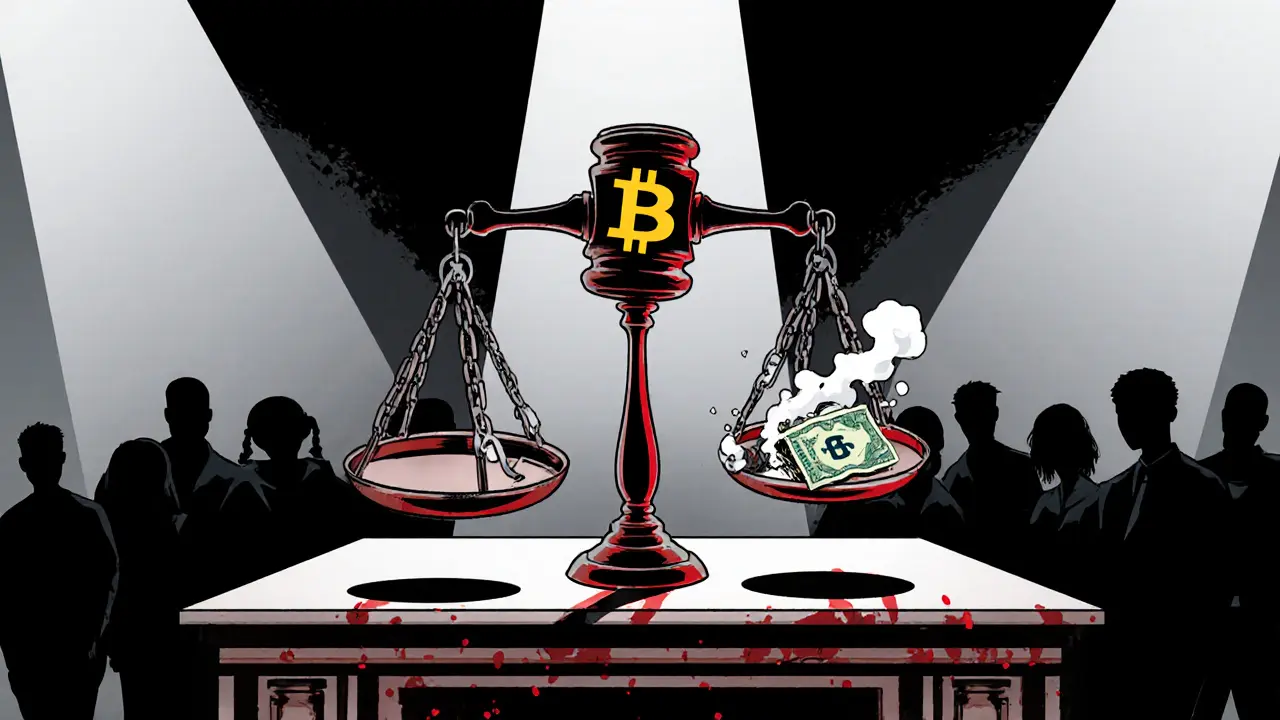
What Happens If You Get Caught?
Most people don’t go to jail for just holding Bitcoin. But if you’re trading regularly, using local agents, or moving large sums, you’re at high risk.
- First offense: Your bank account gets frozen. Your mobile wallet gets blocked. You get a visit from the BFIU for questioning. You might be forced to sign a statement saying you’ll stop.
- Repeat offense: Police open a case under the Money Laundering Act. Your devices are seized. Your crypto is confiscated. You might be detained for days while they investigate.
- Large-scale activity: Arrest. Prison. Fines. Your family’s savings could be wiped out.
And there’s no appeal process. No clear legal path. No court rulings that say "this is legal." The system is designed to scare people into silence.
Is There Any Way Out?
Right now, no. The Finance Minister said in March 2025: "There are no plans to reconsider the ban." The central bank isn’t budging. Even the push from tech startups and remittance users hasn’t changed anything.
The only real "out" is to avoid trading altogether. Or to use crypto only for personal savings, never converting it to Taka. But that’s nearly impossible-because to cash out, you need a local agent. And every agent is a potential trap.
Some traders say they’ll wait until the law changes. But the law hasn’t changed in eight years. And with no political will to reform, it’s unlikely to change soon.
Bottom Line
Bitcoin trading in Bangladesh isn’t a technical violation. It’s a legal gamble with prison as the stakes. The government doesn’t care if you’re just holding it. They care if you’re moving money. And they’ve built a system to catch you.
If you’re trading, you’re not just risking your money-you’re risking your freedom. And for what? A few percentage points in profit? A faster way to receive remittances? The cost is too high.
The ban won’t stop crypto. It just drives it underground, where the risks are highest and the protections are zero. Until the law changes, the only safe move is to stay out of it.
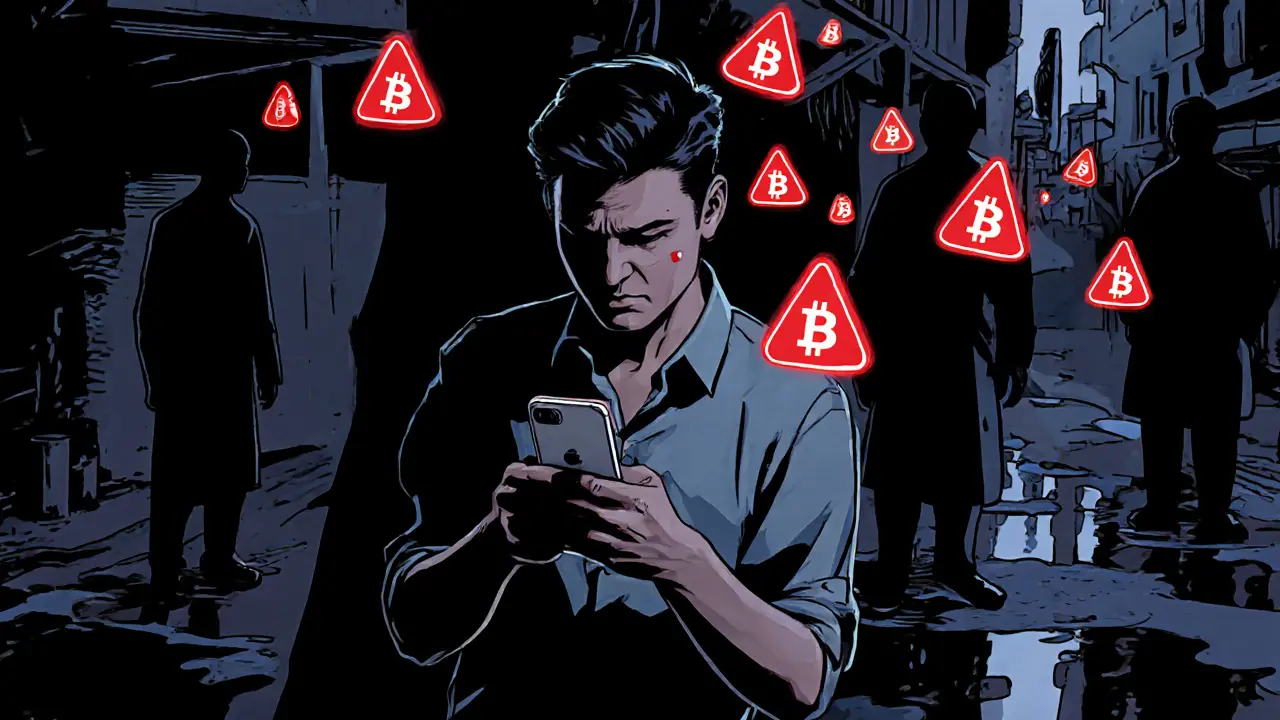
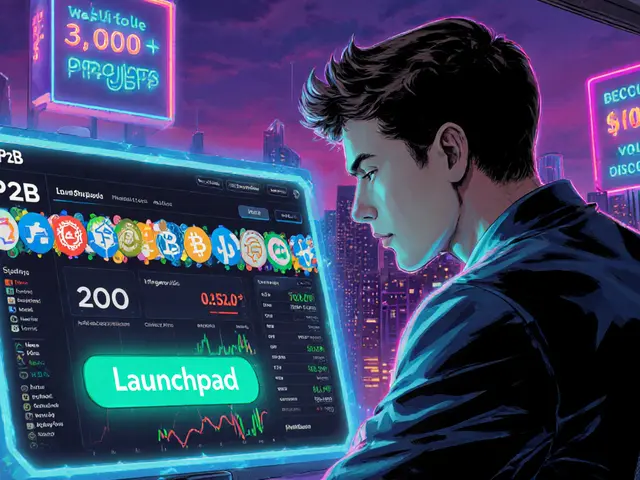
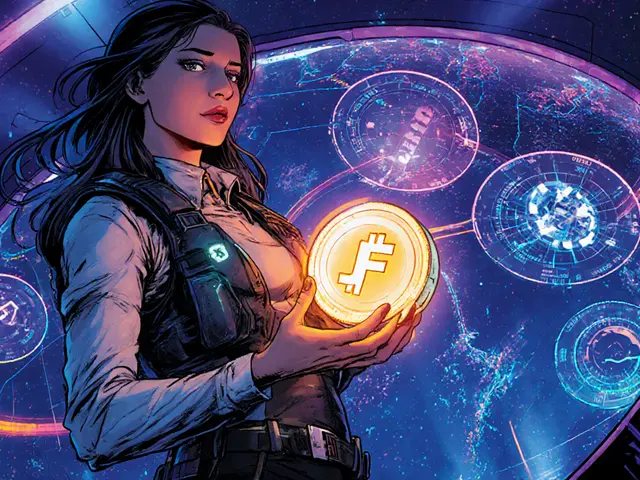
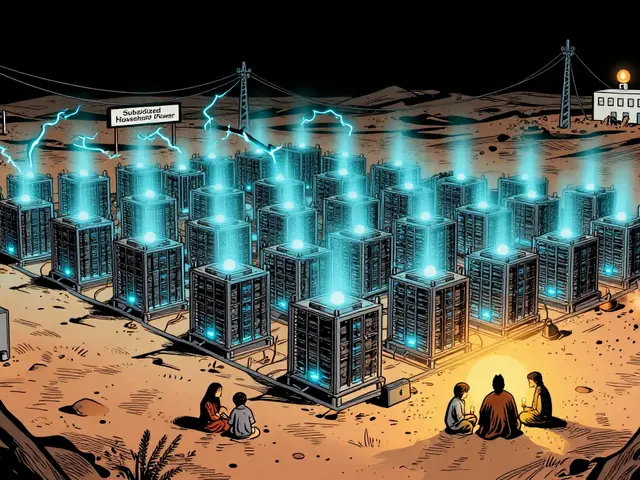
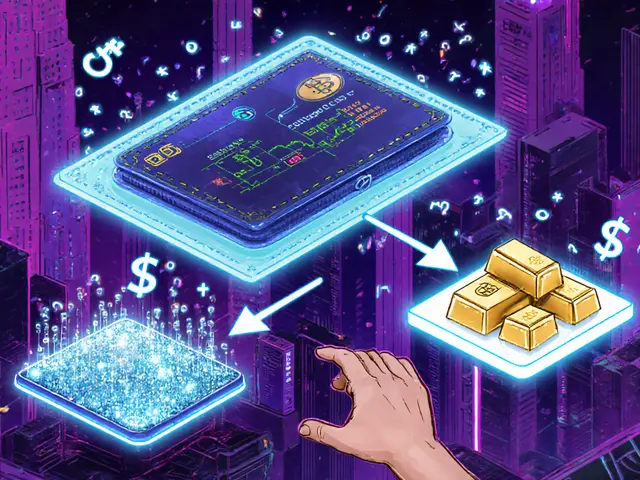
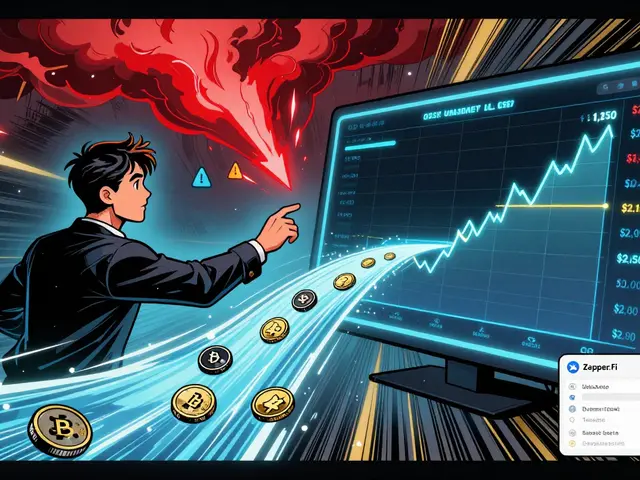
25 Comments
Rosanna Gulisano
October 29 2025This is why you shouldn't play with fire
Bitcoin is not money. It's a gamble with your freedom.
Sheetal Tolambe
October 31 2025I really hope Bangladesh finds a way to protect its people without crushing innovation. Remittances matter so much. Maybe there's a middle ground?
gurmukh bhambra
October 31 2025The central bank is working with the CIA to track your IP. They've had a backdoor in bKash since 2020. I know people who got arrested just for using a VPN. They're not just after traders-they're after control.
Sunny Kashyap
November 2 2025Why even allow crypto if its illegal? Just block it. Why let people get hurt? Bangladesh should be stronger. No half measures.
james mason
November 3 2025Honestly, the real tragedy here isn't the ban-it's that these people are using crypto because their national currency is collapsing. The central bank isn't enforcing a policy. They're enforcing failure. And now they're punishing the victims.
Jean Manel
November 4 2025The 11.4% inflation rate makes this predictable. When your currency is a sinking ship, people grab lifeboats-even if they're illegal. The government's strategy is psychological warfare: create fear so people don't even think about alternatives. It's not about law. It's about control.
William P. Barrett
November 6 2025There's a philosophical contradiction here. The state says Bitcoin isn't money but then treats it as if it were the most dangerous currency in existence. It's like banning a tool because someone used it to break a window. The law isn't about Bitcoin-it's about power. And power doesn't like decentralized alternatives.
Cory Munoz
November 7 2025I feel for the students and shopkeepers getting dragged into this. They're not criminals-they're just trying to survive. Maybe the real crime is making people choose between their family's food and their freedom. 🙏
Jasmine Neo
November 8 2025The NBR doesn't tax crypto because they don't want to legitimize it. But they'll still seize it and charge you under money laundering? That's not fiscal policy. That's extortion dressed as governance. And the fact that Google still hosts Binance? That's the ultimate hypocrisy.
Ron Murphy
November 9 2025Interesting how the regulatory sandbox is for blockchain infrastructure but not for crypto. It's like allowing the engine but banning the fuel. The central bank is playing a very deliberate game of selective innovation.
Prateek Kumar Mondal
November 10 2025People trade because they have no choice. The system failed them. The law should adapt not punish
Nick Cooney
November 12 2025So... the government knows crypto isn't illegal but still arrests people anyway? That's not a legal system. That's a theater of power. And the fact that people still use it? That's the most powerful protest of all. 😅
Clarice Coelho Marlière Arruda
November 13 2025wait so you can own btc but not sell it? thats like owning a gun but not being able to shoot it? 🤔
Brian Collett
November 14 2025I'm shocked the BFIU is tracking mobile wallets. That's next level surveillance. Are they using AI to detect crypto patterns? Or just flagging transfers over 10k?
Allison Andrews
November 15 2025The fact that the central bank privately told the CID Bitcoin isn't illegal-that's the smoking gun. This isn't about law. It's about plausible deniability. They want the power to punish without accountability.
Wayne Overton
November 17 2025You think you're safe with a VPN? Nah. Your phone knows your location. Your bank knows your spending. Your agent knows your name. You're already exposed. Just stop.
Alisa Rosner
November 19 2025This is so sad 😢 People are risking jail just to send money home! Imagine your mom waiting for your paycheck and the only way is through crypto. The government should fix remittance fees-not punish the people using them!
MICHELLE SANTOYO
November 20 2025They're banning Bitcoin because they're scared of what it represents. Freedom. Decentralization. Power to the people. The real crime isn't trading-it's daring to think outside the state's box. And guess what? The system is already crumbling. They know it.
Lena Novikova
November 20 2025So the law says you can own it but not use it? That's not a law thats a joke. You can't have a law that makes no sense and then act surprised when people get arrested
Olav Hans-Ols
November 22 2025I get why people do it. I really do. But I also get why the government is scared. It's not just about money-it's about losing control. Maybe the answer isn't banning it... but teaching people how to use it safely. That's the real challenge.
Kevin Johnston
November 24 2025Crypto saved lives in Bangladesh. Not because it's perfect. But because it worked when nothing else did. 🙌
Dr. Monica Ellis-Blied
November 24 2025The systemic failure here is profound. The central bank has failed to provide a stable financial infrastructure, and instead of addressing the root cause, they criminalize the symptom. This is not governance. It is institutional negligence masked as enforcement.
Herbert Ruiz
November 26 2025This is just another example of why developing nations shouldn't touch crypto. Too complex. Too risky. Just stick to the rules.
Saurav Deshpande
November 26 2025The real conspiracy? The government knows blockchain can fix land records and remittances. But if they legalize crypto, people will ask why they can't have a real currency too. That's why they keep the ban. It's not about money. It's about keeping the people confused.
Paul Lyman
November 27 2025I know someone who got arrested for using bKash to cash out. They didn't even know it was illegal. The system doesn't care if you're innocent. It just wants to make an example. Don't trust the system. Be careful. 💪